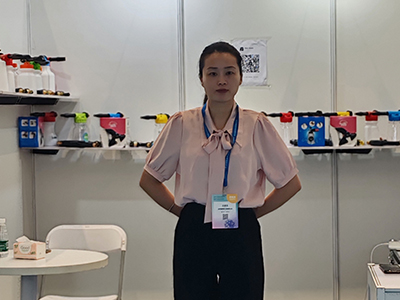What materials are needed for a car wash?
You're looking to source or sell car wash products, but the material choices are confusing. You see plastic and metal options, but which one is right? A wrong choice could mean losing money or your reputation.
The essential materials for car wash tools boil down to two core choices: plastic and metal. The best material depends entirely on your business goals, balancing per-unit cost, durability, and the significant initial investment required for manufacturing molds.
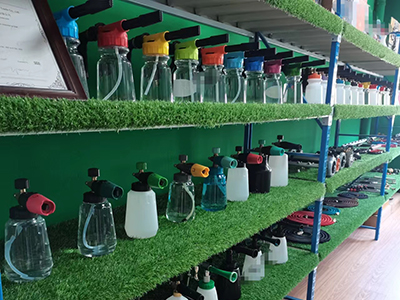
When I first started TZRITAS, my goal was to make high-quality, effective cleaning tools. I quickly learned that "high-quality" doesn't always mean the same thing for every product or every market. The most important decision often comes down to the raw materials. The choice between a plastic component and a metal one can change the price, the feel, and the entire business case for a product. It's a trade-off I've navigated for 15 years. Let's dive into this critical decision so you can understand which path is right for you.
Why is plastic the go-to for high-volume car wash tools1?
You want to launch a product for the mass market and need to keep the price competitive. How do you achieve a low price point without sacrificing function completely?
Plastic is the best choice for high-volume products because its per-unit manufacturing cost2 is significantly lower than metal. This allows you to offer a competitive price3 that attracts a large customer base, maximizing sales volume.
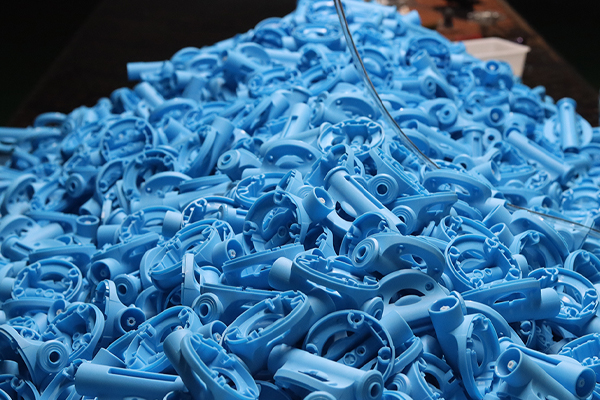
In manufacturing, the cost of the raw materials is king, especially when you plan to sell thousands of units. A foam cannon made entirely of plastic can be about half the price of one that uses metal components for its nozzle or valve. For distributors who need to move a lot of product, this price difference is everything. It allows you to compete effectively in a crowded market. However, there's a big catch: the initial setup cost4. A high-quality injection mold5 for a plastic part is extremely expensive. It has to be perfectly engineered to handle immense pressure and heat. This upfront investment is only worth it if you are absolutely certain you can sell enough units to recover that cost. It's a high-risk, high-reward strategy that pays off beautifully with a best-selling product.
Cost Breakdown: Plastic vs. Metal Tooling
| Item | Plastic (Injection Mold) | Metal (CNC/Casting Mold) | Key Consideration |
|---|---|---|---|
| Mold Cost | ~$30,000 USD | ~$500 USD | Plastic requires a massive upfront investment. |
| Per-Unit Cost | Low | High (approx. 2x plastic) | Plastic is much cheaper for mass production. |
| Best For | Proven high-volume products | Niche, premium, or test products | Match the investment to the sales potential. |
When should you choose metal for car wash equipment?
Your customers demand durability and a premium feel6. They see plastic as cheap and flimsy. How do you build a product that commands a higher price and builds brand loyalty?
Metal is the ideal choice for premium or professional-grade car wash tools. Its durability, weight, and wear resistance create a high-quality feel that justifies a higher price point and appeals to serious enthusiasts and professionals.
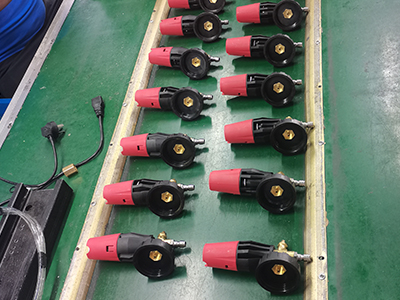
Let’s be honest: when you hold a tool, you can feel the quality. A product made with brass, stainless steel, or aluminum has a reassuring weight and sturdiness that plastic simply can't replicate. It feels substantial. This is more than just perception; metal components are far more resistant to wear and tear. Nozzles won't deform, threads won't strip easily, and valves will operate smoothly for much longer. For customers who use their equipment daily or for those who simply want the best, this durability is a feature worth paying for. The fantastic part for new product development is the low initial investment. A mold for a simple metal part can be incredibly cheap. This allows us to create prototypes or small batches of a new product without risking a fortune on tooling. If the product isn't a hit, we haven't lost much.
How do you decide between plastic and metal?
You understand the pros and cons of each material, but the final decision is still tough. How do you confidently choose the right path for your specific product and market?
The decision is a strategic balance between your target market7 and your sales forecast. Choose plastic for price-sensitive, high-volume markets, but only if you can afford the mold. Choose metal for premium, durable products or for testing new ideas.
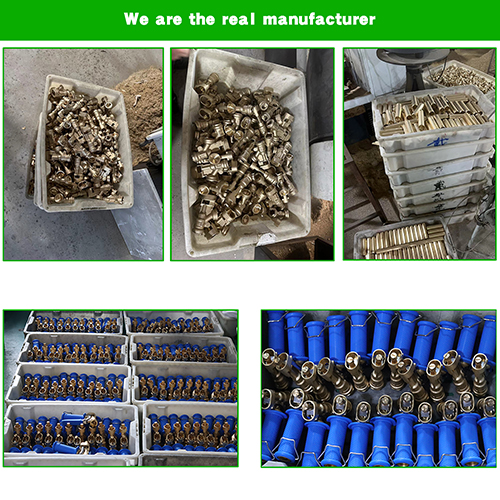
There is no single "best" material. The right answer depends on your business strategy. For over a decade, I've helped clients make this exact choice. I always start by asking two questions: "Who is your customer?" and "How many do you realistically think you will sell?" If the customer is a casual DIYer looking for the cheapest option, and you plan to sell tens of thousands, then we must find a way to finance the plastic mold. If your customer is a professional detailer who values longevity above all else, metal is the only way to go. Sometimes, the best solution is a hybrid, using metal for the critical wear parts like nozzles and valves, and plastic for the body or bottle to keep costs down. This decision is at the heart of successful product development8 in the cleaning industry.
Conclusion
Choosing between plastic and metal defines your product's place in the market. Understanding the trade-offs between unit cost, mold investment, and durability is the key to creating a profitable product line.
Explore this link to understand the materials that make high-volume car wash tools effective and cost-efficient. ↩
Learn how per-unit manufacturing costs influence pricing strategies and profitability in the car wash industry. ↩
Discover strategies to keep your car wash products competitively priced while ensuring quality. ↩
Find out about the initial setup costs involved in manufacturing car wash products and how to manage them. ↩
Understand the significance of high-quality injection molds in producing durable car wash tools. ↩
Explore materials that enhance the premium feel of car wash tools, appealing to serious enthusiasts. ↩
Explore methods to effectively identify and understand your target market for car wash products. ↩
Discover the essential factors that contribute to successful product development in the cleaning industry. ↩
